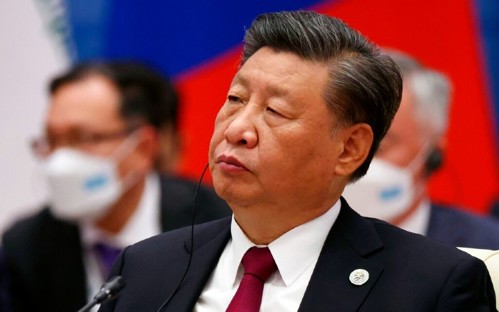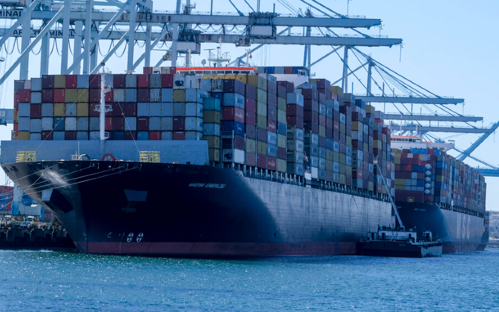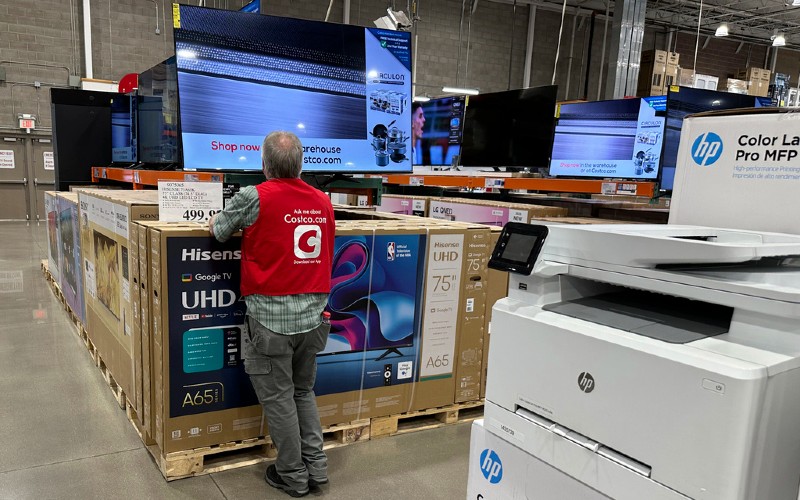Trump is being praised for his tough-guy approach now that three out of four countries – Colombia, Mexico and Canada – have blinked in the face of tariff threats from the new U.S. president.
 China, however, is no easy pushover and has not blinked. In a counter-move to Trump, Beijing instead announced its own tariffs targeting select American imports. It also announced an antitrust investigation into Google just as Trump’s tariffs on Chinese products were taking effect, The Associated Press reported.
China, however, is no easy pushover and has not blinked. In a counter-move to Trump, Beijing instead announced its own tariffs targeting select American imports. It also announced an antitrust investigation into Google just as Trump’s tariffs on Chinese products were taking effect, The Associated Press reported.
Tariffs on imports from Mexico and Canada were scheduled to begin Tuesday. They still may at the conclusion of a 30-day extension announced by Trump as leaders from the two U.S. border countries have said they’ll address his concerns about security and drug trafficking – primarily fentanyl – at the borders.
Brian Rushfeldt, the former president of Canada Family Action, believes Canadian Prime Minister Justin Trudeau listened to his country’s business leaders who told him he would lose to Trump.
 "I don't think Trudeau has the smarts to actually have figured that out," Rushfeldt told AFN. "But I'm pretty sure that the business community, the big-time business leaders and the bankers and investors up here, have been all over him to stop playing this stupid game because you can't win this."
"I don't think Trudeau has the smarts to actually have figured that out," Rushfeldt told AFN. "But I'm pretty sure that the business community, the big-time business leaders and the bankers and investors up here, have been all over him to stop playing this stupid game because you can't win this."
But China has been different. It faced tariffs in a trade war with Trump in 2018 during his first term.
This time its leaders were ready, announcing measures that could impact a number of sectors in the U.S. but also taking care not to upset its own fragile economy, the AP said.
Trump is engaging in a high-stakes game of tariff threats with trillions of dollars at stake, Brandon Arnold, of the National Taxpayers Union, told American Family Radio.
“I’m not a big gambler, but it goes back to the old gambling analogy: you never put money on the table that you’re not prepared to lose,” Arnold told show host Jenna Ellis.
That’s trillion with a ‘T’
Money lost, if it happens, amounts to an enormous tax increase for Americans, Arnold warned.
“The Chinese tariffs obviously did take effect," he said, "but if this is fully carried out in terms of the tariffs with Mexico and Canada, you’d be looking at a tax increase on Americans of over a trillion dollars.”
Trump told reporters Sunday, after signing the orders, that “tariffs don’t cause inflation, they cause success. There could be some temporary short-term disruption, and people will understand that.”
But will they?

Americans endured inflation at an average rate of 8.0% in the middle of Joe Biden’s term. It was down to 2.5 last summer but had begun to rise again and reached 2.9 in December.
The country has lived through four years of economic “disaster” under Biden, Arnold says, which makes the willingness for Trump, elected in large part to reduce the cost of living, to impose tariffs perplexing.
“Tax increases do not generate growth," Arnold, a veteran policy analyst, said. "They do not create wealth. They do not make us a more free or prosperous nation, quite the opposite.”
The Tax Foundation, a nonpartisan nonprofit group, estimates that tariffs on Mexico, Canada and China, if implemented, would shrink economic output by 0.4 percent, increase taxes by $1.1 trillion, and cause the loss of 142,000 full-time jobs.
 Trump’s efforts to cut government spending and downsize its workforce are “at odds” with the idea of tariffs, Arnold said.
Trump’s efforts to cut government spending and downsize its workforce are “at odds” with the idea of tariffs, Arnold said.
Back in Canada, Rushfeldt says political turmoil in Trudeau's own party will keep Trudeau’s liberal government from making the necessary progress on the fentanyl problem within 30 days. But he sees a better working relationship between a conservative Canadian government and Canada’s expected future prime minister, Pierre Poilievre, once Trudeau steps down.
"I think Poilievre has got a plan increasing overall border security period for everything that's going on."
In the meantime, Trump has his own political considerations at home. Governing will be harder if Americans get hurt in the checkbook, sour on Trump, and he loses his shine over tariffs.

If Trump’s popularity fades because costs remain high, Arnold predicts it could be harder for him to get his agenda through Congress and its narrow majorities.
“If Donald Trump loses political capital, it’s going to be a lot more difficult to get his priorities through a tightly divided Congress if he can’t call recalcitrant members and say, ‘Hey, I’m a popular president, and I have this mandate. Vote for this bill because we need it for our country,” Arnold said.







